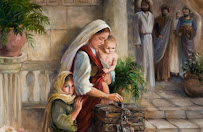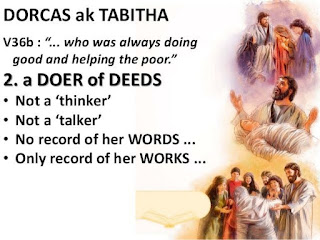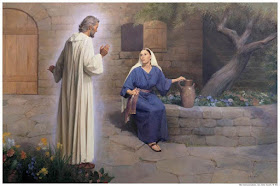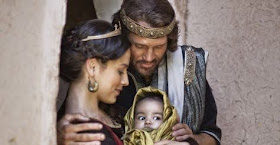As you
may have surmised, I want to focus on the shepherds who were as familiar then as automobiles and cell phones are today. Yet,
ancient shepherding was no fair-weather job. They actually lived in the pasture
with the flock. Many never married, feeling their jobs were too demanding. During
the day they watched while the sheep grazed. They kept an eye out for predators
like wolves. And at night, they actually slept in the sheep pen with the sheep
to guard against theft and animal attack. A good shepherd could identify each
one of his sheep by sight. He knew his sheep and they knew him.
Yet, for all their devotion to
their lambs and sheep, shepherds were despised in first century Palestine.
Those who considered themselves as members of proper society in the more urban
areas looked upon shepherds as uncouth, since they worked with animals. They
were regarded as dirty. Afterall, they had to handle the sheep and walk the
same pastures where sheep dung may stick to their shoes and their clothing may carry
the stench of vomit as they cradled sick lambs in their arms. And the religious
people didn’t consider them devout since their duties kept them from regular
attendance at the synagogue. What would one expect with animals that are
forever getting lost, falling sick, breaking a leg or having obstetrical
difficulties!
Like all people who are despised for whatever reason, they were useful to the people who despised them. Think about it. It was an unblemished lamb offered up in the temple services. Temple authorities had their own private flocks just outside of Jerusalem, in the Bethlehem hills. Here the shepherd cared for their own flocks as well as attending to those of the temple authorities, always on the lookout for the perfect lamb to be offered in the temple. And it was to this despised group of rural, coarse, smelly men that the birth of the spotless Lamb of God was first announced. They were the first to
hear the words, “For unto you is born this day in the city of David a Savior, who is Christ the Lord,” (Luke 2:11). God was demonstrating, by His choice of these humble shepherds to be the first to receive the news of Christ’s birth, that Jesus was not going to be the Savior of only the political and social and religious elite. Jesus is the Savior of all equally; he doesn’t give preference to any group or any class.
Don’t you
love the fact that God loves ordinary people? People like you and me. When we
were lost in our sins, dirty and outcast, he revealed himself to us and let us
know that he wants to become our Savior. There’s something about ordinary folk,
you know those “salt-of-the-earth” type who don’t project false fronts that
some sophisticated people are guilty of doing.
Has loneliness, despair, discouragement,
and brokenness made an appearance in your life? Let the message to the
shepherds sink in: “Unto you is born a Savior.” The angels’ pronouncement that long-ago night
is for YOU.
The birth of the Christ-child is about God coming to us in our everyday lives and saying to us, "Don't be afraid, for look, I proclaim to you good news."
- It's
about God meeting us in our grief and loneliness.
- It's
about God meeting us in our frustration and discouragement.
- It’s
about God wanting to mend the brokenness in our lives.
- It's
about God wanting to be a part of everything that affects us.
Christ shed his blood on Calvary that we might have eternal
life in a heavenly home that is beautiful beyond our comprehension.
Have a blessed Christmas!
 |
| Christmas Message by Shari Hervold |





















































